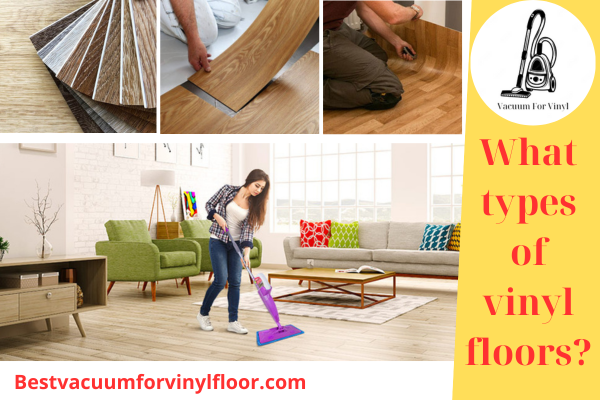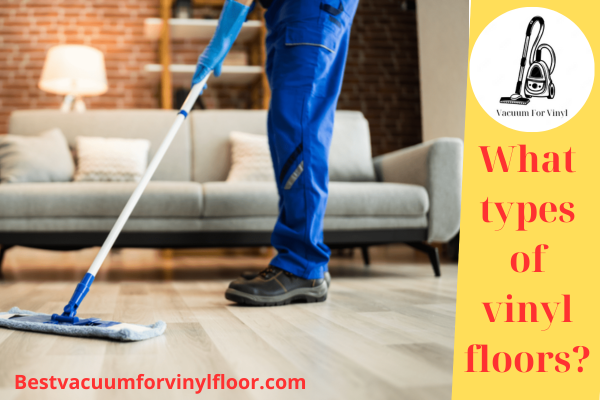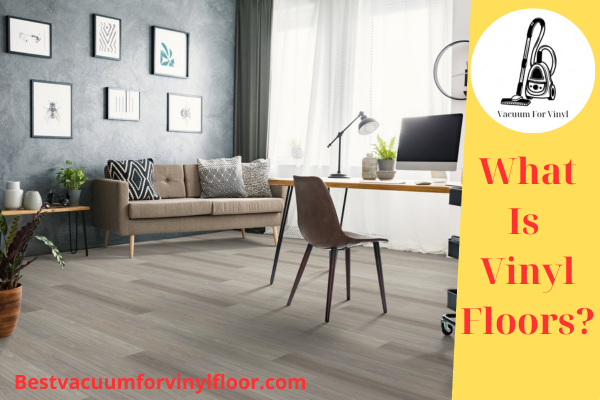What Is Vinyl Floors? Vinyl flooring has long been favored in bathrooms and kitchens due to its water resistance, ease of cleaning, and low maintenance. Traditionally, it was considered a budget-friendly choice. However, with advancements in design and manufacturing, modern vinyl flooring has become a competitive option even in spaces traditionally dominated by ceramic, porcelain, or hardwood. Now, homeowners can effortlessly enhance the aesthetics of their spaces with vinyl flooring.
Vinyl flooring available today bears a remarkable resemblance to wood, tile, stone, and ceramic. With its wide array of textures and shades, you have limitless design options, ensuring you never feel limited in your choices. Read on to learn more about the three types of vinyl flooring: Luxury Vinyl Tile (LVT), Luxury Vinyl Plank (LVP) and Sheet Vinyl. [1]
The Composition of Vinyl Floors
Composition: Vinyl Floors is typically composed of multiple layers that work together to provide both aesthetic appeal and functional benefits. The layers may include:
- Backing Layer: This layer provides stability and structural support to the flooring. It often includes materials like PVC or fiberglass to give the flooring its strength.
- Vinyl Core Layer: The core layer is where the visual design is printed. Advanced printing techniques, such as high-definition 3D printing, allow for intricate and realistic patterns that closely resemble natural materials like wood, stone, or tile.
- Wear Layer: The wear layer is a crucial component that provides protection against scratches, stains, and general wear and tear. It’s typically made from a clear, durable material that adds to the flooring’s longevity.
- Surface Texture Layer: Some Vinyl Floors flooring has an additional layer that adds texture to the surface, enhancing the realistic feel of the material.
What types of vinyl flooring?
Vinyl flooring comes in three major types, each with its own advantages:
-
What is Luxury Vinyl Tile (LVT)?
Luxury vinyl planks (LVP) are meticulously crafted to replicate the timeless beauty of wood flooring styles. With their enhanced thickness and rigidity, LVPs outshine sheet vinyl in terms of durability and scratch-resistance. Comprised of high-quality PVC, these planks feature a design layer that flawlessly emulates the rich aesthetic of hardwood. Choose from a wide array of trendy colors and textures, ranging from light wood to elegant shades of grey and whitewash. Plus, the addition of protective layers ensures that these planks remain unmarred by scratches, tears, and stains.
LVP installation options offer homeowners and builders unparalleled versatility. With the floating tongue-and-groove option and the glue-down option available, LVP installation becomes a breeze. The tongue-and-groove luxury vinyl planks not only provide easy installation but also create a waterproof surface that can withstand standing water, making them perfect for rooms prone to moisture like bathrooms, kitchens, and basements. On the other hand, the glue-down installation of LVP ensures better plank stability and increased durability, making it ideal for larger spaces. These glue-down options are also water-resistant, making them a great choice for areas where spills and messes are common, such as mudrooms, laundry rooms, and bedrooms. Additionally, for those looking to add a touch of visual interest to their floors, certain LVP designs can be installed in unique patterns like herringbone, parquet, and chevron, adding a touch of elegance to any space.

-
What is Luxury Vinyl Plank (LVP)?
Luxury vinyl tile (LVT) closely resembles ceramic tile, stone, or porcelain, utilizing a similar construction to luxury vinyl plank (LVP). Its durability and rigidity come from a thick vinyl layer, while the design layer boasts natural stone patterns and textures, providing exceptionally authentic visuals. LVT offers the convenience of floating or glue-down installation options, giving you flexibility for your flooring needs. Unlike traditional tile, LVT boasts effortless installation, eliminating the need for laborious grout work and reducing installation costs. Additionally, LVT can be effortlessly laid on top of existing flooring, eliminating the hassle of ripping out old flooring beforehand.
LVT is widely recognized for its exceptional durability and waterproof properties, making it an ideal choice for bathrooms, basements, kitchens, and more! Families with children and pets will appreciate its hassle-free maintenance, as spills and everyday messes are effortlessly wiped away. Unlike traditional stone and tile flooring, luxury vinyl tile presents a much lower slip hazard, while still offering unmatched elegance.
Read more: Best Vacuum For Vinyl Floors
-
Sheet Vinyl:
Sheet vinyl flooring has been a popular choice for decades due to its waterproof properties and affordability. However, modern advancements in technology have elevated sheet vinyl to new heights in terms of aesthetics. With the ability to mimic the authentic look of wood and stone flooring at a fraction of the cost, sheet vinyl offers an attractive and budget-friendly option. Its installation process is also simplified, sheet vinyl requires a stable subfloor and meticulous attention to prevent visible seams.
While sheet vinyl may not be as scratch-resistant as LVT or LVP, its softness adds a touch of comfort to any space. Additionally, its wide range of patterns, colors, and designs allows you to stay up-to-date with the latest trends effortlessly. Should your preferences change, switching out sheet vinyl is a hassle-free task. Moreover, its easy-to-clean nature makes it an ideal choice for craft rooms, playrooms, basements, and beyond. [2]
What are the advantages and disadvantages of vinyl flooring?
-
Advantages:
Affordable: Vinyl flooring offers a remarkable affordability compared to wood, ceramic, and stone alternatives. Moreover, the luxury vinyl flooring available today is so impeccably crafted that distinguishing it from the real thing becomes a challenge. With such exceptional quality, there is simply no justification for spending more on pricier flooring materials when vinyl delivers an equally impressive result.
Durability: Vinyl floors feature a sturdy wear layer that can withstand heavy foot traffic and common scratches and stains.
Flexible Installation Options: Vinyl flooring can be installed with an array of installation methods, including glue-down and floating tongue-and-groove options for LVPs and LVTs. Sheet vinyl requires a stable subfloor and meticulous attention to prevent visible seams.
Waterproof: Both sheet vinyl and luxury vinyl planks boast waterproof properties, making them ideal for rooms that are more prone to moisture and spills.
Easy Maintenance: Vinyl flooring is incredibly easy to clean; all it needs is a regular sweeping and occasional mopping with a mild cleaner.
Comfortable: Vinyl floors have a softer, cushiony feel that makes them more comfortable to stand and walk on for extended periods.
Eco-Friendly: Vinyl floors are made from environmentally friendly materials, which makes them a great option for those looking to go green. Vinyl floors are free from phthalates and have undergone rigorous antibacterial testing, ensuring the highest quality standards. Additionally, it have earned A+ rating on the VOC test.
Easy Maintenance: Regular maintenance of vinyl floors includes sweeping and occasional mopping, keeping them looking fresh all year long.

-
Disadvantages:
Less Durable: Vinyl floors may not be as durable as wood or stone alternatives, and they are more prone to scratches and dents.
Low Resale Value: Vinyl flooring typically adds little to no resale value to a home.
Susceptible to UV Damage: Over time, vinyl flooring can become discolored when exposed to direct sunlight for long periods of time.
Not Heat-Resistant: Vinyl flooring is not suitable for areas exposed to high levels of heat or direct sunlight as it can easily degrade.
What is the difference between LVP and laminate flooring?
- The main difference between LVP and laminate flooring is in their construction. Laminate flooring features a multi-layer construction of fiberboard, while LVP utilizes a single layer of vinyl on top of an HDF core. This makes luxury vinyl planks more durable and rigid than laminate.
- Additionally, the installation process for each type of flooring is also different. Laminate flooring uses a “click-lock” system, while LVP may be installed with either a glue-down or floating method based on the flooring type.
- Laminate flooring tends to be more affordable than luxury vinyl planks and generally comes in more color variations and patterns. However, LVP boasts superior scratch and water-resistance, making it an ideal choice for kitchens and bathrooms.
- Ultimately, both laminate and LVP can provide similar looks at a fraction of the price of real wood flooring, but each one has its own unique advantages that make them better suited for different areas in your home.
- When considering which type of flooring to install, it is important to take into account the amount of foot traffic, exposure to moisture, and any other factors that may affect its longevity. Comparing all your options can help you make the best informed decision for your home and lifestyle.
How to Maintain Your Vinyl Flooring
- Regular Cleaning: To maintain your vinyl floors, it is important to sweep and mop them regularly with a mild cleaner with pH neutral. This will help remove dust, dirt, and other particles that can lead to scratches over time.
- Spot Clean Spills: As soon as a spill occurs, it is important to blot up any liquid with an absorbent cloth or paper towel. Avoid rubbing or scrubbing the spill as this can cause permanent damage.
- Avoid Abrasive Cleaners: It is also important to avoid using harsh chemical cleaners or abrasive cleaning pads when cleaning your vinyl floors. These can damage the surface of the flooring, resulting in discoloration and scratches.
- Avoid Dragging Furniture: It’s important to use furniture sliders or pads when moving heavy pieces around the house. Dragging furniture across a vinyl floor can scratch the surface and cause permanent damage.
- Use Door Mats: Placing mats at entrances will help reduce the amount of dirt, debris, and moisture coming in contact with your vinyl floors. This will help keep them looking pristine for years to come.
- Regular Waxing: Depending on the type of vinyl flooring you have, it may be recommended to wax or polish your floors every 6-12 months for added protection. This will help repel dirt, debris, and other particles that can lead to scratches over time.
Maybe you are interested: Are Robot Vacuums Safe For Luxury Vinyl Floors?
Conclusion: What Is Vinyl Floors?
Vinyl flooring is an excellent option for those looking for a budget-friendly and durable floor that won’t break the bank. It offers exceptional affordability, durability, flexibility, and waterproof properties that make it perfect for rooms prone to spills or moisture. However, as with any other type of flooring, it is important to take into account potential drawbacks such as its susceptibility to UV damage and not heat-resistant. With proper care and maintenance, your vinyl floors will look great for years to come!

